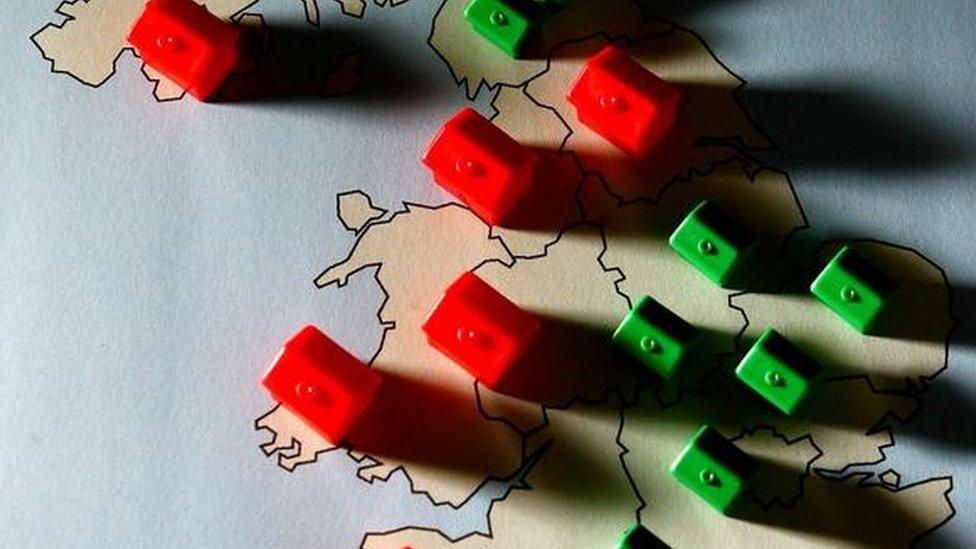House sellers 'should pay stamp duty'
- Published
- comments

Stamp duty should be a tax on property sellers, rather than buyers, to help those trying to buy their first home, a major UK building society has said.
The Yorkshire Building Society said that nearly three-quarters of first-time buyers now paid the tax, compared with just over half in 2006.
Many more buyers were being drawn into the tax as house prices rose but the threshold remained the same.
It is levied on properties of more than £125,000, or £145,000 in Scotland.
The rate steadily increases for more expensive properties.
'Not suitable'
The stamp duty threshold was increased to £125,000 in 2006 to keep pace with house price inflation.
The threshold outside of Scotland had remained the same since then, despite the fact that the average house price had risen by 35%, the Yorkshire said.
The building society has suggested that first-time buyers in the UK could save an average of £3,625, while Londoners could save £13,171, if the tax burden was shifted to sellers.
Those moving up the property ladder could save an average of £4,154 across the UK, and £9,762 in London, it said.
It is calling on Chancellor Philip Hammond to change the tax in his Budget on Wednesday.
"In its present form, stamp duty does not suit today's housing market - it pushes up costs for those looking to buy, exacerbating affordability issues in a market where prices have vastly outpaced wage growth," said Andrew McPhillips, the Yorkshire's chief economist.
"Levying the charge against sellers rather than buyers will help to reduce costs for first-time buyers, helping more people to get on the property ladder. It would also help those moving up the property ladder, enabling them to move to a more suitable property and potentially freeing up smaller homes for first-time buyers to purchase."
This would not solve the housing crisis, he said, but would help if accompanied by a major housebuilding programme.
Reacting to the suggestion, some potential first-time buyers said they would welcome such a change.
However others say that a seller facing the extra tax burden would simply add that cost onto the asking price of the property, and that this would have little effect overall on affordability.
Figures have shown that the UK government is raising a record amount of tax from property sales.